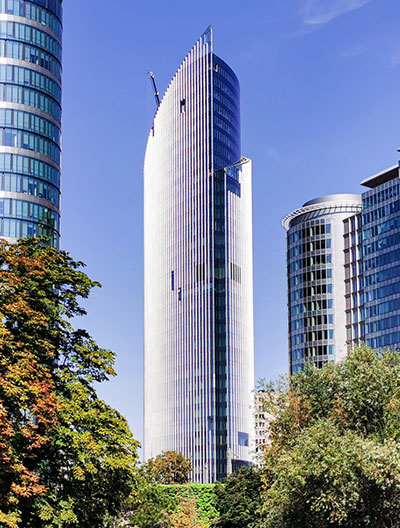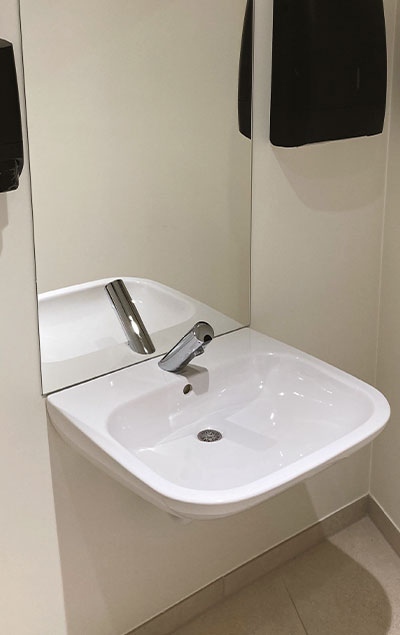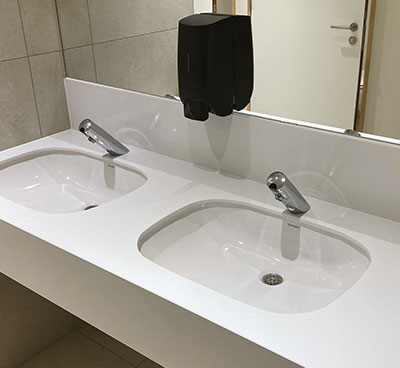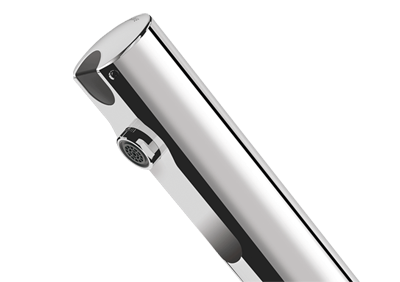
Iris Tower - a clear desire to combine environment, design, hygiene and accessibility
At the end of 2018, the real estate developer Ghelamco began construction of the Silver Tower, located near the Brussels-North station. The construction company sold its shares in 2020 to the German real estate fund Deka Immobilien, and signed the lease with the Brussels regional administration for the next 18 years.
The Silver Tower has been renamed the Iris Tower - the iris being the emblem of the Brussels region.
This civic space makes it possible to centralise services to house the inhabitants of Brussels and to provide the employees of the regional administration with a more suitable and modern working environment. This 137-metres high skyscraper has 40,000m² of office space spread over 32 floors. This ultra-modern building, with its exceptional energy performance, is a prime example of the latest techniques and methods. The project also represents a strong commitment from the Brussels-Capital region to revitalise and reanimate the Gare du Nord district which is seeing a renaissance.

The ecological building was designed around the principles of sustainable investment, with an emphasis on thermal insulation and energy optimisation. Mr. Bustelo points out that the objective of the BREEAM Excellent label also influenced the choice of sanitary fittings: "Achieving an Excellent BREEAM level is only possible by aiming for maximum points in all technical areas. In the washrooms, taps need to limit consumption, with a very low flow rate over a short period of time, delivering a low volume per use without detracting from the comfort of the end user. This is exactly what DELABIE's water controls did."
By choosing electronic taps, which are activated only when the user is detected and close automatically when the hands are removed from the detection zone, water savings of up to 90% can be achieved compared to mechanical taps.
Reducing water consumption also has an impact on energy consumption. If less hot water is used, less energy is needed to heat the water, which also impacts on the design of the washroom installation. The energy source should also be taken into account. For example, active-pulse infrared technology is a low-energy consumption solution since the infrared signal is transmitted intermittently. All this contributes to a positive score for eco-labels such as BREEAM.

However, optimising energy consumption was not the only factor taken into consideration when choosing the water controls. In the context of the current Coronavirus pandemic, hygiene is also a major concern. With electronic, self-closing basin taps, no manual contact with the tap is necessary. Any bacteria or viruses cannot be spread by hand. By replacing the aerator with a hygienic flow straightener, residual water and dirt are also reduced, which prevents the build up of scale and bacteria at the tap outlet. The specified electronic mixers also benefit from an automatic duty flush. The duty flush activates if the tap is not used for 24 hours, preventing water stagnation in the taps and the pipework, an important factor in the fight against bacterial development.

DELABIE products installed
TEMPOMATIC 4 electronic basin tap - reference 44000015
Bright polished stainless steel drop-down rail, L. 850mm - reference 510170P
Bright polished stainless steel angled grab bar 135°, 400 x 400 mm - reference 5082P



